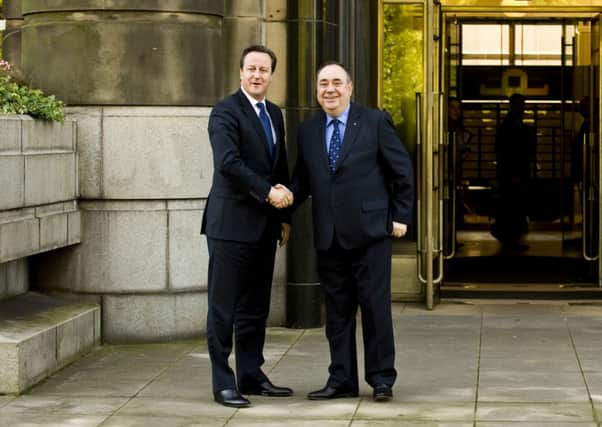Heal the rifts from Scottish independence battle


Our relationships with others form the heart of our lives and are vital for both our personal happiness and well-being, and for the wider community and economy as a whole.
Regardless of the outcome of the referendum on Scottish independence, the quality of our relationships will be central in shaping what type of country Scotland will be in the future, whether as part of the UK or as a new, independent country.
Advertisement
Hide AdAdvertisement
Hide AdThe fabric of Scottish life depends on our interactions with others, whether this is within our intimate relationships, with our families, our work colleagues, or with our neighbours and friends. Relationships matter, and if Scotland is to thrive we need to take care of how we interact with one another.
The cost of family breakdown to the Scottish economy, in terms of housing, social care, tax and benefits and the civil and criminal justice system, is estimated by the Relationship Foundation to be in excess of £3 billion each year.
This is a staggering amount, which is further compounded by the human cost of broken relationships – emotional, psychological, and at times physical, damage.
Relationship breakdown also often results in children losing touch with one of their parents and today in Scotland one third of fathers will have no contact at all with their children following separation or divorce.
The Scottish Government’s National Parenting Strategy (2102) for the first time placed relationship support at the heart of government policy and acknowledged the vital role he parental relationship plays in the lives of children.
In essence, when parents communicate and work together well, even where they have separated, children tend to have better outcomes in relation to their education and future prospects, as well as to their general wellbeing.
The Scottish Government has recently provided new financial backing to the voluntary sector to provide relationship counselling, family mediation and other forms of family support services across the country, thus creating a support infrastructure that can directly support families when and where they need it.
In the workplace, too, strained relationships, personality clashes and power battles are also estimated to cost billions each year.
Advertisement
Hide AdAdvertisement
Hide AdThe Chartered Institute of Personnel and Development (CIPD) has reported an increase in workplace conflict through the recession and said that the management time required to resolve grievance issues has increased by around 50 per cent since 1997.
They further report an increase in the use of mediation by human resources specialists, with more than 80 per cent of public sector members of the CIPD stating that they have used this method as a way of resolving disputes, demonstrating the efficacy of this approach in the commercial setting.
In response to the recent Review of the Scottish Civil Courts led by Lord Gill, the Scottish Government called for a “major shift” in the provision of alternative forms of dispute resolution (ADR), and has agreed with research findings that show interventions such as mediation lead to faster, more cost effective and longer-lasting resolutions than are achieved through the courts.
The Courts Reform (Scotland) Bill was formally introduced to the Scottish Parliament on 6 February and provides a clear opportunity to imbed into the Scottish legal system new arrangements whereby people can resolve their difficulties through a collaborative rather an adversarial approach.
In terms of the increasingly bitter debate over Scottish Independence, John Sturrock QC of Core Solutions has produced a “Protocol for Respectful Dialogue”, in which he sets out a series of common sense yet helpful guidelines.
By showing respect to others, listening attentively, using language carefully, and avoiding personal attacks and offensive statements, people can engage in vigorous debate and yet maintain respect for the other point of view. Such an approach can only but help lay the foundations for the healing and reconciliation process that will inevitably be required from 19 September onwards.
For Scotland to truly prosper, whether as a new independent country or as part of the UK, we need to strive for positive and respectful relationships with those around us.
By doing so, we can help create a listening, caring society that values people’s well-being and handles conflict constructively. That would be a Scotland to be proud of.
Advertisement
Hide AdAdvertisement
Hide Ad• Stuart Valentine is the chief executive of Relationships Scotland, which provides relationship counselling, family mediation and child contact centres across the country www.relationships-scotland.org.uk
SEE ALSO